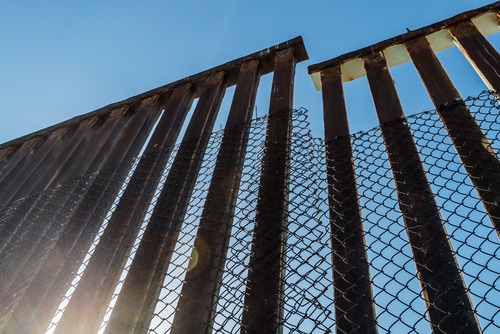
On Monday, U.S. Rep. Earl L. “Buddy” Carter (R-GA) introduced a bill to secure the U.S. southern border.
The Build Better Borders Act of 2021 would increase civil monetary penalties for illegally crossing the border to $450,000. It stipulates that funds collected from those fines be directed to constructing the border wall between the United States and Mexico.
“Drugs and crime are pouring across our southern border,” Carter said. “Since Biden took office, illegal border crossings have increased over 200%, and there is now enough fentanyl in the United States to kill every American adult three times over. As a pharmacist, I know an effective prescription when I see one, and building the wall is the only remedy to a crisis of this magnitude. We cannot treat illegal immigrants better than we do families of fallen soldiers. It’s time to reestablish the rule of law and force Joe Biden to protect our safety, taxpayer dollars, and constitution.”
The bill is cosponsored by Reps. Rick Allen (R-GA), Andy Biggs (R-AZ), Glenn Grothman (R-WI), and Jody Hice (R-GA).
“The Biden Administration has not requested any funding for the border wall, in fact, they have actively stopped construction,” Allen said. “Now they allegedly want to pay illegal immigrants as much as $450,000. These policies have sent the wrong message that our border is wide open, and there are no consequences for illegally entering our country. Our commonsense legislation will increase fines for those who break the law and then put those funds toward securing our border.”
The $450,000 to which Allen refers is part of a negotiation between the Biden Administration and immigrants separated from their children during the Trump administration. In October, the Wall Street Journal reported that some 5,500 parents and children were separated at the border and have since filed a lawsuit against the U.S. government. Settlement talks revolve around payment of $450,000 per person to resolve the lawsuits, but negotiations are ongoing.




